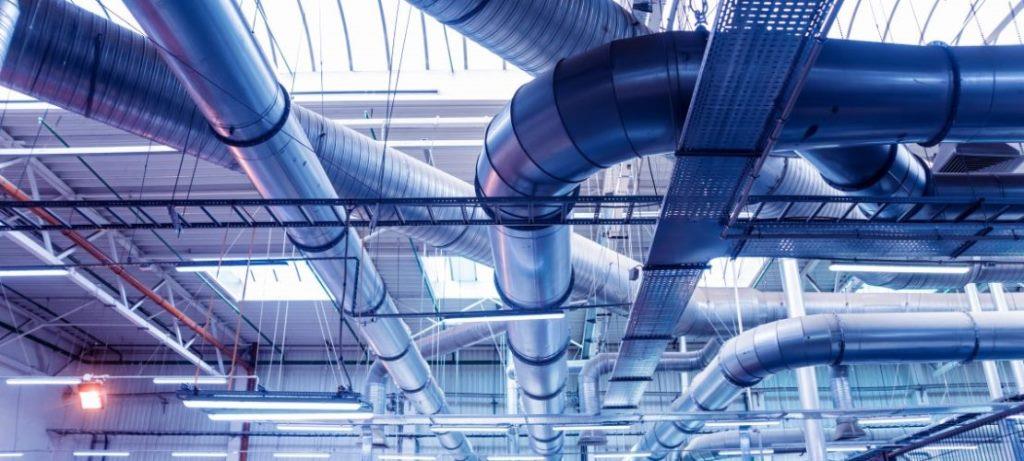Mechanical contracting involves the installation, maintenance, and repair of mechanical systems in buildings and infrastructure. These systems include heating, ventilation, air conditioning (HVAC), plumbing, refrigeration, and often fire protection systems. Mechanical contractors ensure that these systems are designed, installed, and operate efficiently and safely.
Scope of Work
Design
The design phase is critical for creating effective and efficient mechanical systems. It involves:
- System Planning: Determining the requirements for HVAC, plumbing, refrigeration, and other mechanical systems.
- Blueprints and Schematics: Creating detailed diagrams and specifications for system components and layouts.
- Load Calculations: Calculating heating and cooling loads, water demand, and other parameters to ensure systems can handle the expected usage.
Installation
Installation is the process of constructing and implementing mechanical systems. Key activities include:
- Ductwork and Piping: Installing ducts for HVAC systems and pipes for plumbing and refrigeration.
- Equipment Installation: Setting up boilers, chillers, air handlers, pumps, and other mechanical equipment.
- System Integration: Ensuring that all components work together seamlessly and are properly connected to power and control systems.
Maintenance
Regular maintenance ensures that mechanical systems operate efficiently and have a long service life. Maintenance activities include:
- Routine Inspections: Checking system components for wear and tear, leaks, and other issues.
- Cleaning and Servicing: Cleaning ducts, filters, and other components, and performing regular servicing as needed.
- Performance Testing: Testing system performance to ensure it meets design specifications and operates efficiently.
Repair
Repairs are necessary when mechanical systems fail or malfunction. This involves:
- Diagnostics: Identifying the root cause of the problem.
- Troubleshooting: Systematically addressing issues to restore functionality.
- Component Replacement: Replacing faulty components such as valves, motors, and sensors.
Types of Mechanical Contracting
HVAC (Heating, Ventilation, and Air Conditioning)
HVAC contractors handle the installation and maintenance of systems that control indoor climate and air quality. Their responsibilities include:
- Heating Systems: Installing and maintaining furnaces, boilers, and heat pumps.
- Cooling Systems: Setting up air conditioners, chillers, and cooling towers.
- Ventilation: Ensuring proper ventilation to maintain indoor air quality and comfort.
Plumbing
Plumbing contractors install and maintain systems that provide water supply, drainage, and sanitation. Key tasks include:
- Water Supply Systems: Installing pipes, valves, and fixtures for potable water.
- Drainage Systems: Setting up drainage and sewer systems to remove wastewater.
- Gas Lines: Installing and maintaining gas supply lines for heating and cooking.
Refrigeration
Refrigeration contractors work on systems that preserve perishable goods and maintain temperature-controlled environments. Their work includes:
- Commercial Refrigeration: Installing and maintaining refrigerators, freezers, and display cases in supermarkets and restaurants.
- Industrial Refrigeration: Setting up large-scale refrigeration systems for warehouses and manufacturing facilities.
Fire Protection
Fire protection contractors install and maintain systems designed to detect and suppress fires. Their responsibilities include:
- Sprinkler Systems: Setting up and maintaining automatic sprinkler systems.
- Fire Alarms: Installing and servicing fire alarm systems and smoke detectors.
- Specialized Suppression Systems: Implementing systems for specific hazards, such as foam or gas suppression systems.
Skills and Qualifications
Technical Knowledge
Mechanical contractors must have a thorough understanding of mechanical systems and components. This includes knowledge of:
- Thermodynamics and Fluid Mechanics: Understanding the principles that govern heating, cooling, and fluid flow.
- System Design: Knowledge of designing efficient and effective mechanical systems.
- Building Codes and Standards: Familiarity with the regulations that govern mechanical system installations.
Practical Skills
Practical skills are essential for performing installations and repairs. These include:
- Pipefitting and Welding: Proper techniques for connecting pipes and ducts.
- Equipment Installation: Setting up and calibrating mechanical equipment.
- Troubleshooting: Identifying and resolving mechanical issues efficiently.
Safety Awareness
Safety is paramount in mechanical contracting. Contractors must follow all safety protocols to prevent accidents and injuries.
Licenses and Certifications
Most regions require mechanical contractors to be licensed. This typically involves:
- Education and Training: Completing an apprenticeship or formal education program.
- Examinations: Passing written and practical exams.
- Continuing Education: Staying updated with the latest codes, standards, and technologies.
Regulatory Compliance
Mechanical contractors must adhere to strict regulations and standards to ensure safety and compliance. Key aspects include:
- Building Codes: Ensuring all installations meet local, state, and national building codes.
- Permits and Inspections: Obtaining necessary permits and passing inspections by regulatory authorities.
- Safety Standards: Following safety guidelines from organizations such as OSHA (Occupational Safety and Health Administration) and NFPA (National Fire Protection Association).
Tools and Equipment
Mechanical contractors use a variety of tools and equipment to perform their tasks, including:
- Hand Tools: Wrenches, pliers, pipe cutters, and screwdrivers.
- Power Tools: Drills, saws, and pipe threaders.
- Diagnostic Equipment: Pressure gauges, thermometers, leak detectors, and multimeters.
- Safety Gear: Gloves, safety glasses, hard hats, and protective clothing.
Conclusion
Mechanical contracting is a vital profession that ensures the functionality and safety of mechanical systems in buildings and infrastructure.
From initial design and installation to maintenance and repair, mechanical contractors play a critical role in creating comfortable, efficient, and safe environments.
By adhering to regulations, using the right tools, and maintaining a high level of skill and safety, mechanical contractors contribute significantly to the quality and reliability of our built environment.

